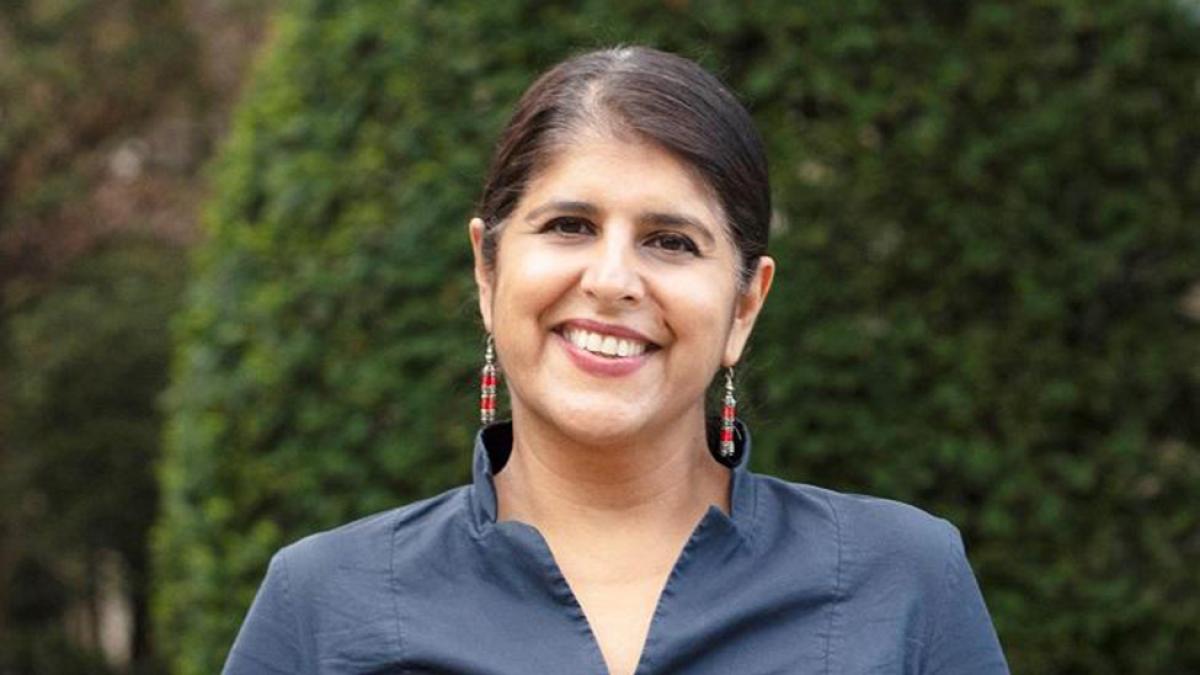Born in New Delhi, Professor Smita Narula spent her childhood in South and Southeast Asia before moving to the United States. Inspired by her parents’ work with the U.N., she knew early on that she wanted to engage in human rights work. After law school, Professor Narula accepted a fellowship at Human Rights Watch and remained with the organization for six years, first as an India researcher, and later as Senior Researcher for South Asia. In these capacities, she helped found India’s National Campaign for Dalit Human Rights and the International Dalit Solidarity Network, organizations dedicated to advancing the right to equality for more than 260 million people affected by caste discrimination worldwide.

Smita Narula
Biography
Professor Smita Narula is the Elisabeth Haub School of Law’s inaugural Haub Distinguished Chair of International Law and Co-Director of the Law School’s Global Center for Environmental Legal Studies. Professor Narula teaches International Environmental Law, International Human Rights Law, Environmental Justice, Human Rights and the Environment, and Property. She is author of dozens of widely cited publications on human rights, food systems, and the environment, and has helped formulate policy, legal, and community-led responses to a range of social justice and ecological issues worldwide.
Professor Narula is the 2022 recipient of the Law School’s Faculty Award for Excellence in Teaching. In 2021, Professor Narula was inducted as a Fellow into the American College of Environmental Lawyers. Prior to joining Haub Law, she was Distinguished Lecturer and Interim Director of the Human Rights Program at the Roosevelt House Public Policy Institute at Hunter College. Prior to Hunter, Professor Narula was an Associate Professor of Clinical Law at New York University School of Law, where she taught the International Human Rights Clinic and served as Faculty Director of the Center for Human Rights and Global Justice. In these capacities, she helped found and grow the law school’s human rights program—a top-ranked program for international law in the United States.
In 2008 she was appointed legal advisor to the U.N. Special Rapporteur on the Right to Food and served in this capacity for the duration of the Rapporteur’s six-year mandate. From 1997 to 2003, Professor Narula served as India researcher and Senior Researcher for South Asia at Human Rights Watch. In 2000, she co-founded the International Dalit Solidarity Network, a transnational advocacy network that helps advance the right to equality for 260 million people affected by caste-based discrimination worldwide.
Professor Narula graduated with honors from Harvard Law School, where she was editor-in-chief of the Harvard Human Rights Journal. Prior to law school, she earned a BA and MA with honors from Brown University and worked on HIV and public health issues at UNICEF and the United Nations Development Fund.
Education
- BA, MA, Brown University
- JD, Harvard University
Selected Publications
View all of Professor Narula’s publications on SSRN, Digital Commons or download her CV (PDF).
- From Food Security to Food Sovereignty: Transforming Food Systems through Law and Practice, Indiana Journal of Global Legal Studies (forthcoming, 2024)
- Realizing the Right to Food in Maine: Insights from International Law, 76 Maine Law Review 165 (2024)
- Confronting State Violence: Lessons from India’s Farmer Protests, 54 Columbia Human Rights Law Review 89 (2022).
- “Peasants’ Rights and Food Systems Governance,” in The United Nations Declaration on Peasants’ Rights (Mariagrazia Alabrese, Adriana Bessa, Margherita Brunori, Pier Filippo Giuggioli, eds., Routledge, Taylor & Francis Group, 2022).
- Climate Change Law: An Introduction (Karl Coplan, Shelby Green, Katrina Kuh, Smita Narula, Karl Rabago & Radina Valova, eds.) (Edward Elgar Publishing, 2021).
- “Human Rights and Climate Change,” in Climate Change Law: An Introduction (Karl Coplan, Shelby Green, Katrina Kuh, Smita Narula, Karl Rabago & Radina Valova, eds.) (Edward Elgar Publishing, 2021).
- “Achieving Zero Hunger Using a Rights-based Approach to Food Security and Sustainable Agriculture,” in Fulfilling the Sustainable Development Goals: On a Quest for a Sustainable World, (Narinder Kakar, Vesselin Popovski, & Nicholas Robinson, eds., Routledge, Taylor & Francis Group, 2021).
- The Global Land Rush: Markets, Rights, and the Politics of Food, 49 Stanford Journal of International Law 101 (2013).
- Reclaiming the Right to Food as a Normative Response to the Global Food Crisis, 13 Yale Human Rights and Development Law Journal 403 (2010).
- Equal by Law, Unequal by Caste: The ‘Untouchable’ Condition in Critical Race Perspective, 26 Wisconsin International Law Journal 255 (2008).
- The Right to Food: Holding Global Actors Accountable Under International Law, 44 Columbia Journal of Transnational Law 691 (2006).
- Broken People: Caste Violence Against India’s “Untouchables” (Human Rights Watch, 1999). Award-winning, and translated into Hindi, Gujarati, Marathi, Telugu, and Tamil.20, 2000.
Fellowships & Scholarships
- Fellow: American College of Environmental Lawyers (ACOEL) since 2021. ACOEL Fellows are selected for their “distinguished experience, high standards of practice and substantial contributions to the field of environmental law”.
- Visiting Research Scholar, Roosevelt House Public Policy Institute, 2014–2017
Honors & Awards
- 2022 Faculty Award for Excellence in Teaching, Elisabeth Haub School of Law, Pace University.
- Appointed as the inaugural Distinguished Haub Chair in International Law at the Elisabeth Haub School of Law at Pace University, 2018
- Appointed Legal Advisor to the U.N. Special Rapporteur on the Right to Food, 2008 – 2014; shortlisted by U.N. Human Rights Council for the Special Rapporteur position, 2014
- Public Interest Achievement Award, North American South Asian Bar Association, 2008
- Rafto Prize to National Campaign on Dalit Human Rights (co-founder), 2007 (prestigious European human rights award. Several Rafto laureates have gone on to win the Nobel Peace Prize).
- Access to Justice Award, South Asian Bar Association of New York, 2007
- Dalit Liberation Education Trust Human Rights Award, (for “outstanding research and writing” of the book Broken People: Caste Violence Against India’s “Untouchables,” presented by former Chief Justice of the Supreme Court of India), 1999
Areas of Interest
International Environmental Law, International Human Rights Law, Environmental Justice, Climate Justice, Food Justice, Food Sovereignty, The Right to Food, Indigenous Peoples’ Rights, Social Movements, Sustainable Development Goals, Caste Discrimination, India and South Asian Law
Related News and Stories
Professor Smita Narula has been selected to receive the 2022 Faculty Award for Excellence in Teaching. Each spring, the Faculty Development Committee selects a member of the tenured or tenure-track faculty or a visiting professor with a contract longer than one year in duration to receive the award . The Faculty Award for Excellence in Teaching recognizes that outstanding pedagogy occurs in a variety of settings at the Law School—it can be found in courses of all sizes and types, in teachers with diverse styles, and across subject matters.
The Elisabeth Haub School of Law at Pace University has conferred the 2020–2021 Elisabeth Haub Award for Environmental Law and Diplomacy on Ugandan climate justice advocate Vanessa Nakate and Professor Wang Xi, an environmental law scholar and advocate with Kunming University of Science and Technology in China.

